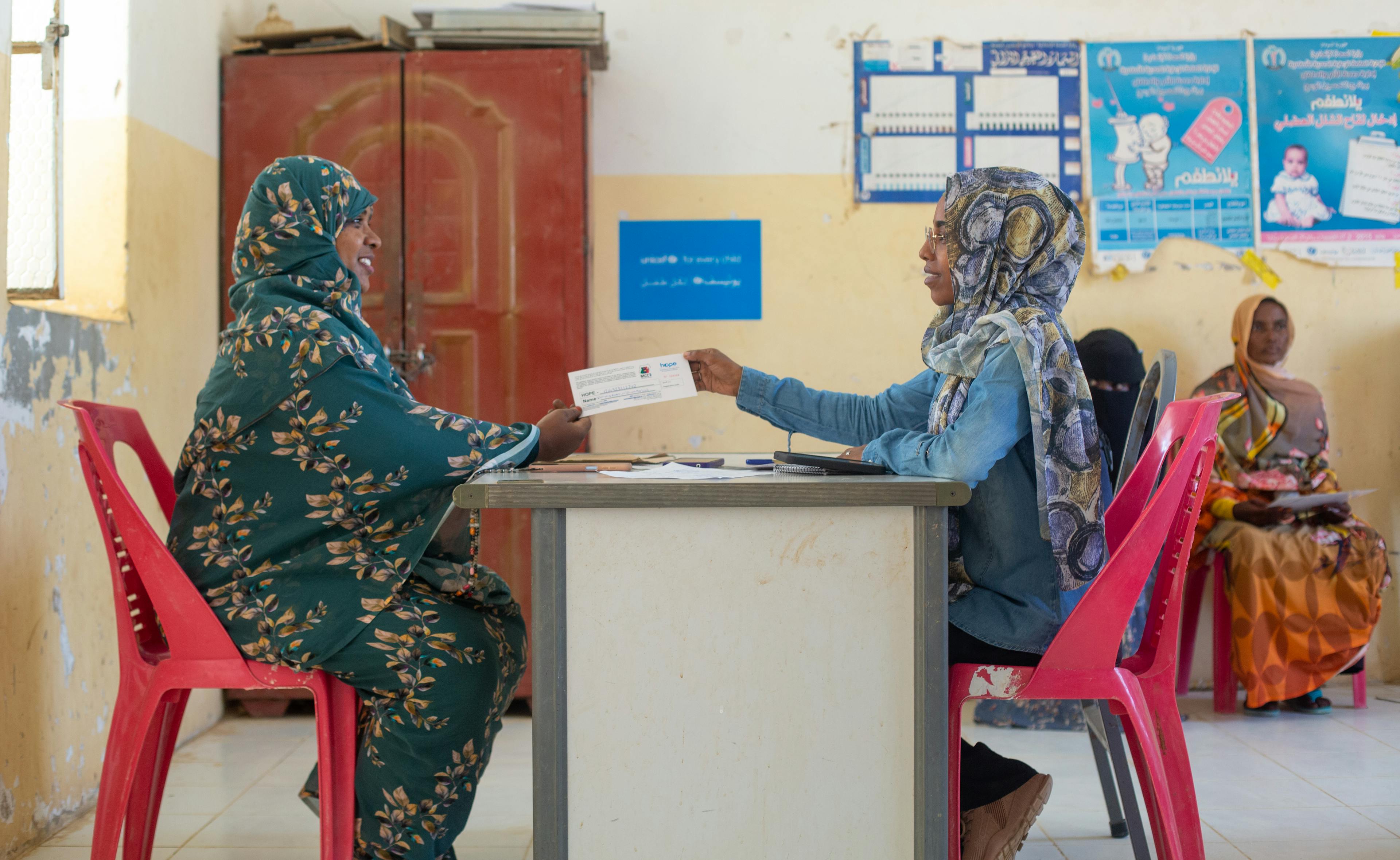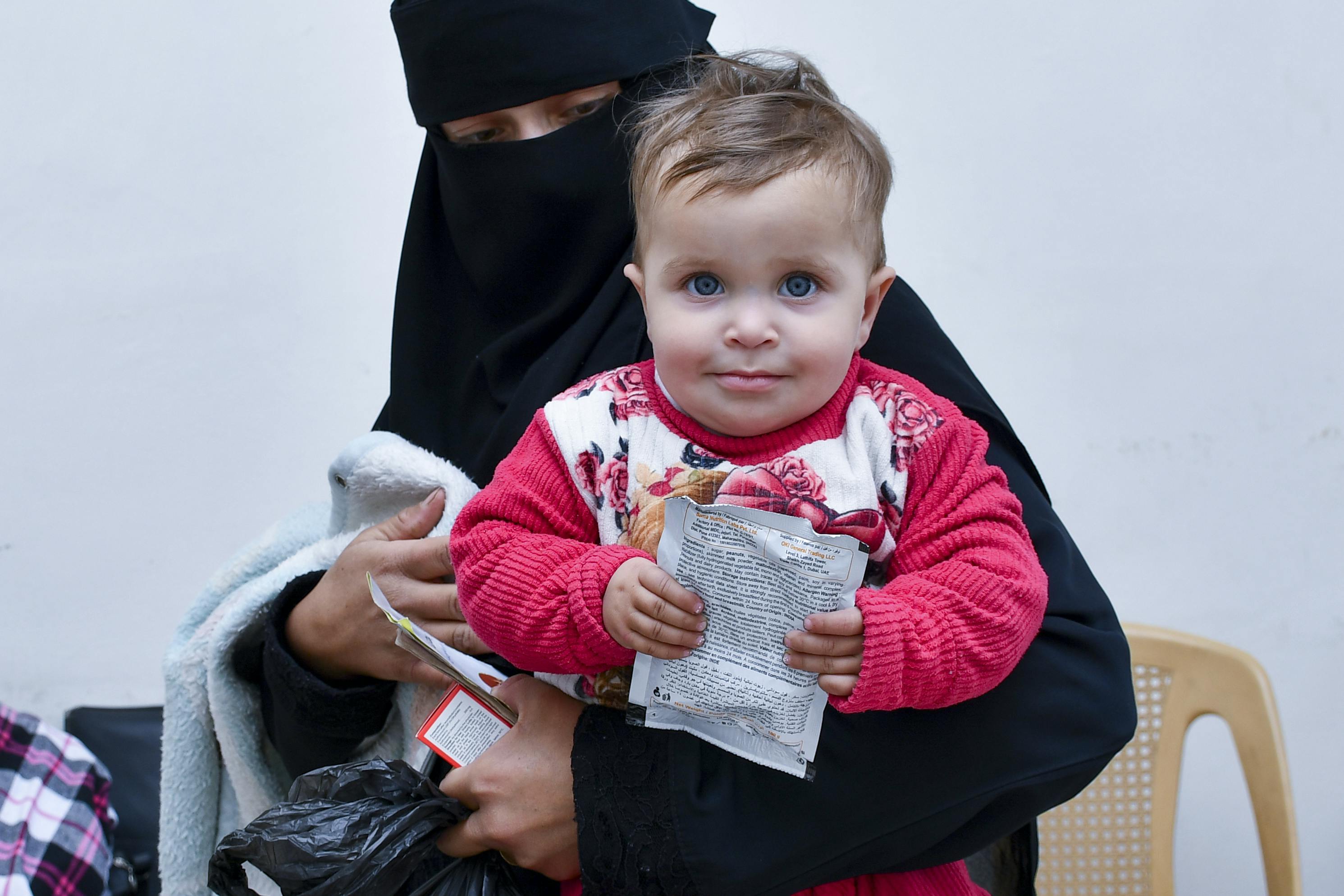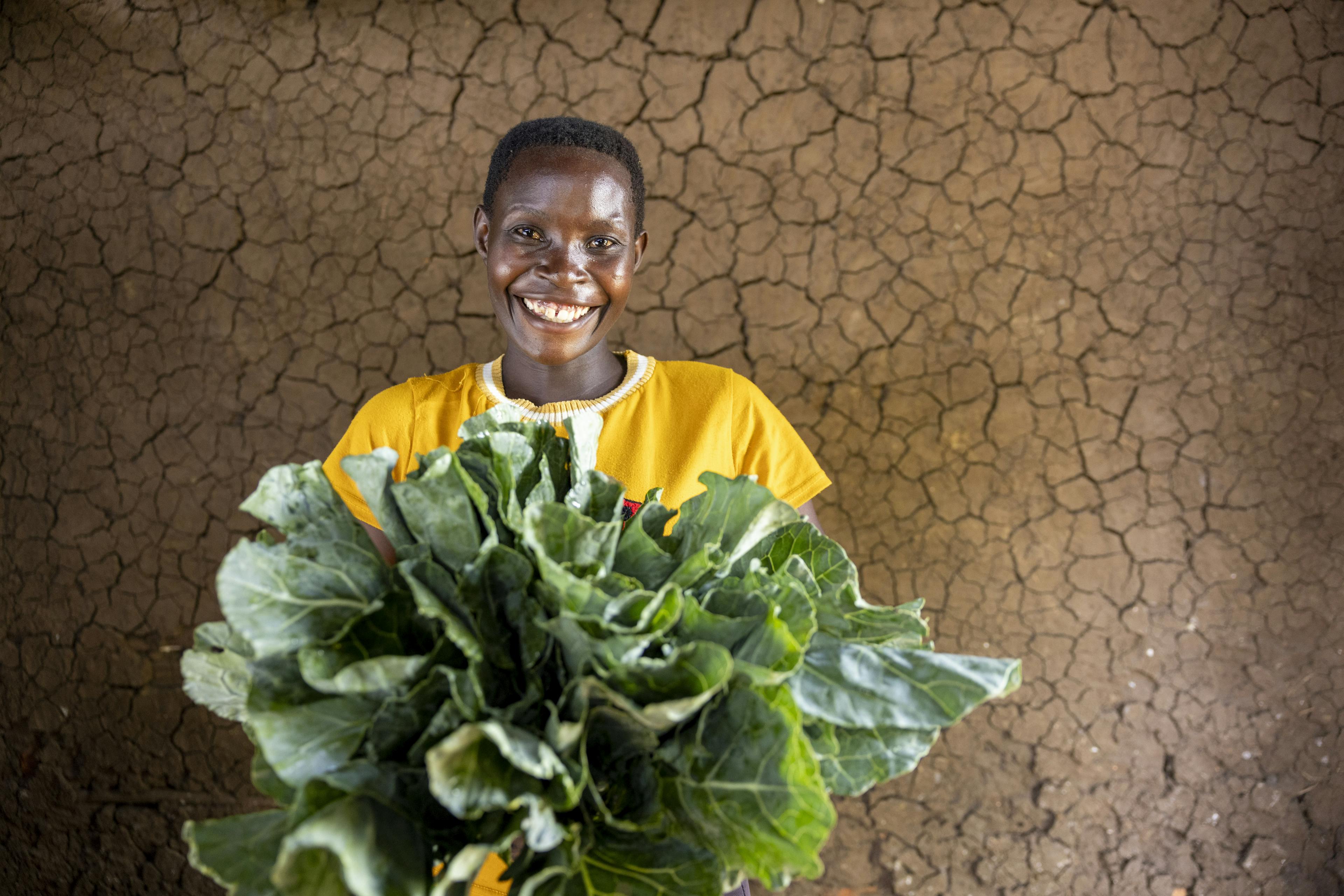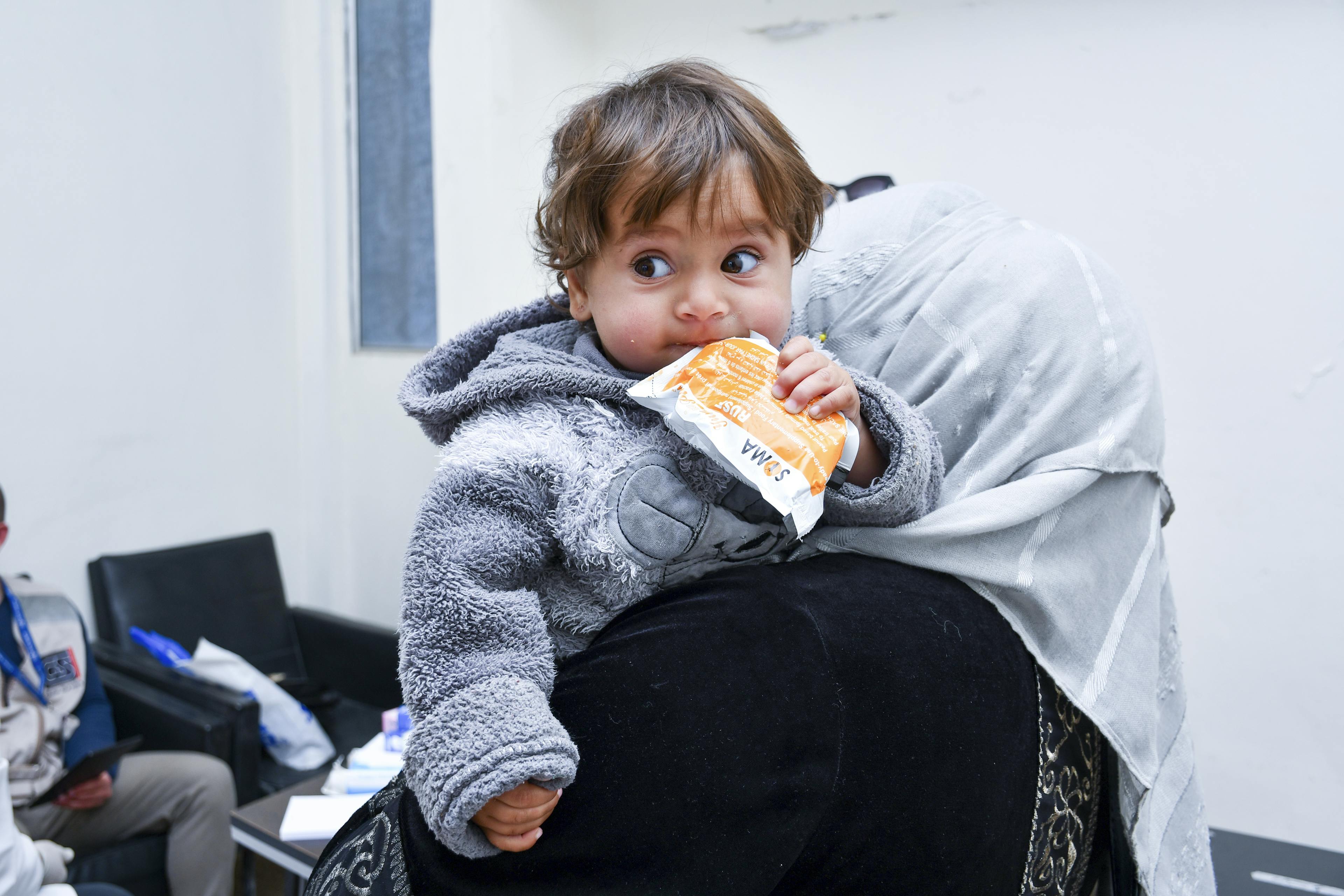
Good News: May Edition
Home
Stories
Good News: May Edition
Across the globe, mothers and children are the centre of what we do.
At UNICEF we know with absolute certainty that the health of a child is fundamentally linked to the health of their mother. From conception, to pregnancy, to postpartum and beyond, the vitality and health of a child depends on that of their mums.
In most of the regions we run long term programmes, mothers are the primary caregivers who most of the time are not only nurturing their kids but also taking care of their homes, properties and tending to older members of their communities. Mums are the ones responsible for sourcing food and water and many also work to earn an income to support all of this. These roles and responsibilities are often done in contexts of extreme gender inequality and with the threat of violence. And in many instances, socio political conflict and climate change exacerbate this load.
As we come to the end of May, a month where many countries around the world celebrate Mother’s Day, we wanted to bring you some Good News… The long term programmatic work we do for kids wouldn’t have the impact it does without the work we do to support their mums, the two go hand in hand.
These are some of the ways we do it.
Cash Transfers in Sudan
In Sudan’s River Nile State, thousands of mums are getting the practical, hands-on support they need to raise healthy, thriving kids because of a long-term UNICEF programme.
It’s called Mother and Child Cash Transfer Plus (MCCT+), and the idea is simple: if you invest in a child’s first 1,000 days—from pregnancy to age two—you give them the best shot at a strong start in life. So that’s exactly what we’re doing.
Through MCCT+, mums receive quarterly cash payments to help cover essentials like food, transport to the clinic, or whatever they need most. But that’s just the beginning. They also get access to vital antenatal and postnatal care, nutrition support for their babies, child protection services, and guidance every step of the way.
So far, over 78,000 women across Sudan’s eastern states have benefited from the programme. And it’s growing—another 15,000 mums in River Nile are next in line.
It’s about reducing child malnutrition. It’s about preventing maternal deaths. But it’s also about restoring choice, dignity and momentum to mothers doing it all in the hardest of circumstances.

Going mobile for the mums in Syria
Since 2021, rural Damascus, UNICEF has been running a health and nutrition project across Syria’s southern governorates, supporting 23 fixed health centres and nine mobile teams to reach children and women in hard-to-reach areas. In Duma, these teams literally go where the need is, sometimes travelling long distances to deliver essential care.
So what does this look like in practice? A mum in a remote village gets her baby screened for malnutrition. A pregnant woman receives iron tablets and nutrition counselling. A child is given high-energy biscuits and micronutrient powders to prevent undernourishment before it starts. It’s simple, preventative care—but it’s saving lives.
But the teams aren’t just handing out supplies; they’re also offering support, counselling and education. Mums and caregivers are learning about breastfeeding, complementary feeding, and how to make sure their kids get the nutrients they need as they grow. They’re also receiving treatment plans if their kids are shown to be malnourished. And it’s working.
Since the beginning of 2024 alone, more than five million children and two million women have received health and nutrition support across Syria through this project. That’s five million little immune systems strengthened. Five million futures safeguarded.
This work is only possible because of our global partners. Together, we’re showing what’s possible when care meets commitment—and when children and mothers are truly prioritised.

What’s Cooking in Uganda’s Kitchens
In Namayingo, Uganda, mum of four, Jackline Nabwire, was struggling to feed her growing kids- the maize and cassava harvests she had been cultivating were barely enough to sell or feed her family.
But everything changed when she went for her antenatal visits at the Bumooli Health Centre where everyone there was talking about kitchen garden project.
Jackline decided to join. The initiative is a kitchen gardening project to help families grow their own food using whatever space and materials they have. Simple, practical, and surprisingly powerful. As part of a broader programme aiming to empower communities across Eastern and Southern Africa to exercise their sexual and reproductive health rights (SRHR) and access integrated, people-centred services, the kitchen gardens is a joint effort by UNICEF, the WHO, other UN agencies.
In Namayingo District, teenage pregnancy rates stand at a staggering 27 per cent, and malnutrition among mothers and children is widespread. The programme has been hugely successful.
Soon, Jackline was able to grow her own veggies and making healthy meals for her kids, but she also had enough surplus to sell at the local market. Suddenly, Jackline wasn’t just feeding her family—she was running a small business.
“We were shown how to prepare soil beds, transplant seedlings, apply manure and even prevent plant diseases. The training was hands-on and easy to follow,” she says
The best part though is that the kitchen gardens are the epicentre for a much bigger patform to engage the community. They are proving to be powerful tools for broader health education. Sadat Mukasa, Assistant Nursing Officer at Bumooli Health Centre, notes that the gardens have opened up discussions about other health related topics like family planning, child spacing and economic empowerment. “We tell mothers that when they plan their families well, they can manage farming better and earn income to support their children.”
Daniel Okeyoh Dembe, Senior Agricultural Officer for Namayingo District, says the programme is thriving because it brings together health, community development, and production departments. “The training is practical, and the results are clear. Families are eating better and earning more,” he says.
Jackline now has her sights set on scaling up her garden—and mentoring other women in her community to do the same. Because when one mum thrives, others grow with her.
“Before, I felt invisible, now I am someone who provides for my family, teaches others, and have plans for the future.” Jackline.

